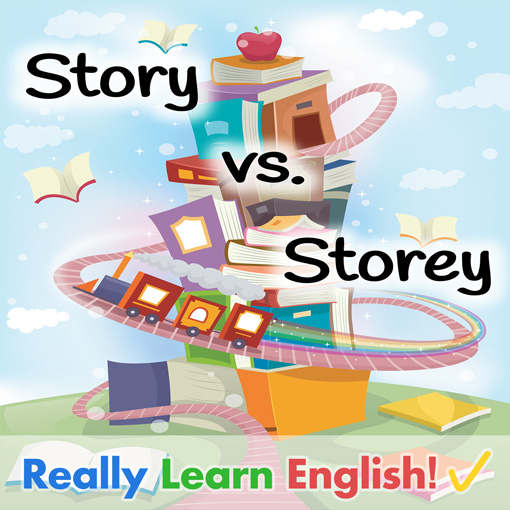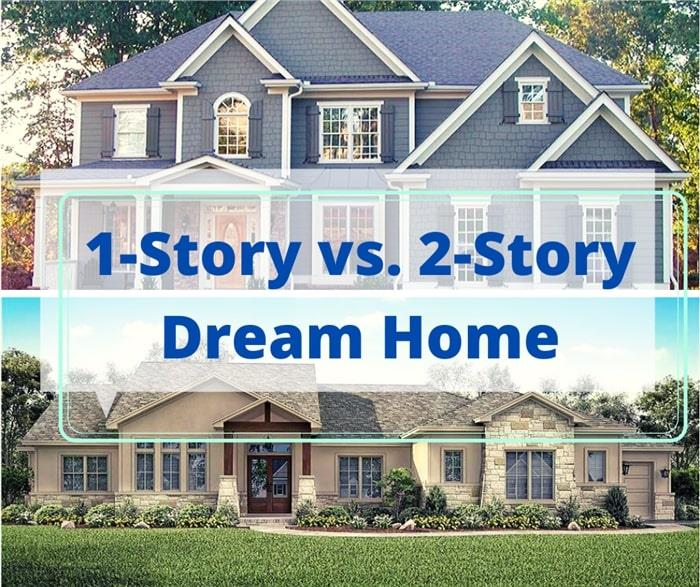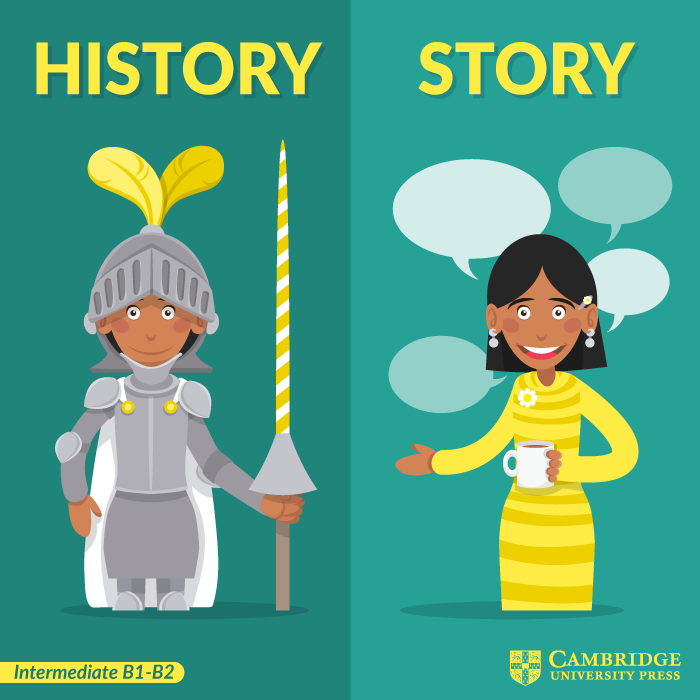
Story Vs Storey Learn english, English as a second language, English story
A storey (British English) or story (American English) is any level part of a building with a floor that could be used by people (for living, work, storage, recreation, etc.). Plurals for the word are storeys (UK) and stories (US). May 18, 2019. Story. An account of imaginary or real people and events told for entertainment.

Don't confuse Storey vs. Story Vocabulary Pinterest English idioms, Grammar and
1 Another aside regarding "American-English": in the US, the ground floor and first floor are interchangeable, whereas in a lot of (maybe all?) other countries, you have the ground floor and then the first floor above it. See this thread: english.stackexchange.com/questions/238495/…

Single Storey Vs Double Storey Homes Meridian Homes
Story is a alternative form of storey. As nouns the difference between storey and story is that storey is a floor or level of a building or ship while story is a sequence of real or fictional events; or, an account of such a sequence. As a verb story is to tell as a story; to relate or narrate about.

Storey Vs. Story Storeys Vs. Stories Confusing English Words UK vs. US English YouTube
A narrative or tale told for entertainment or education purposes. An account of real or imagined events, often involving characters and a plot. A building level or height, usually referring to a single floor of a building. "Storey" refers to the vertical distance between two adjacent floor levels in a building. It is commonly used in architecture and construction to describe the height.

Onestorey VS Twostorey House Extensions Pros And Cons
Story is the American spelling for a building's horizontal level with more than one floor, while storey is the British preferred spelling with the same definition. Story can also mean a narrative or series of events. Is it Two-Storey House or Two-Story House? Both phrases are correct.

Story vs. Storey What Is the Difference? (with Illustrations and Examples)
(February 2022) A storey plan A storey ( British English) [1] or story ( American English) [2] is any level part of a building with a floor that could be used by people (for living, work, storage, recreation, etc.). Plurals for the word are storeys (UK) and stories (US).

Q&A Story vs Storey? Australian Writers' Centre
Story vs. Storey Story and storey are two words with the same pronunciation and similar spellings. Do you know what such words are called? Check out our article on Homophones to know the answer. In this Grammar.com article, let us explore the two words with their meanings and usages. 2:53 min read 4,333 Views Ramya Shankar — Grammar Tips Font size:

This English lesson explains the difference between STORY and STOREY illustrations, definitions
What is the difference? Story and storey are two commonly confused words in the English language. How do you know when to use each one? The two words have almost identical spellings, and are pronounced in the same way. Both words are nouns, but the definitions are not related at all!

How to Choose One Storey vs. Two? Deanside Village
Story When referring to the levels of a building, both words mean the same thing; however, in the United States, the preferred spelling is story. Storey Storey, on the other hand, is a strictly British usage. In countries using British English, story refers to an account we tell others for entertainment, such as a bedtime story.

The Pros and Cons of OneStory Homes vs. MultiStory Homes Ryan Roberts Realtor
A storey, also spelled as story, is a level of a building that is above the ground floor. It is commonly used in architectural and engineering contexts to describe the vertical division of a building. A storey may be referred to as a floor, level, or story. Buildings can have one or many storeys, depending on their height and purpose.

Story vs Storey
1. I was captivated by the story she told me last night. 2. She loves to tell stories to her grandchildren. 3. His story sounds far-fetched, but I believe him. Storey Meaning: A storey (or story) is a level of a building, usually with a floor and roof. Examples: 1. The building had five storeys. 2.

OneStorey vs. TwoStorey Which is the Best Option for You?
What is the Difference Between Story and Storey? In this post, I will compare story vs. storey. I will demonstrate the use of these words in at least one example sentence. I will also give you a memory tool to use when you can't decide whether story or storey is more appropriate for your intended audience. When to Use Story What does story mean?

OneStory vs. TwoStory Dream Home? Are You Ready to Decide?
In American English, the word "story" can convey two meanings: a narrative or a level in a building. By contrast, British English uses "storey" to refer solely to a level within a structure. For instance, a British audience might encounter the phrase "two-storey house," while their American counterparts would see "two-story house."

STORY vs STOREY myenglishteacher.co.uk
A made up 'story' can also mean a lie. Note that we use the phrasal verb 'make up' (past form = made up) here to mean 'invent'. "Don't listen to his stories. They are all untrue." A 'storey' refers to a floor of a building. "Many Australian homes are single-storey houses."

Single vs. Double Storey Houses G.J. Gardner Homes
Story and Storey. In American English, the noun story means narrative or 'level of a building'. However, in British English, 'level of a building' is written 'stor e y'. The plural of story is stories. The plural of storey is storeys. Examples: Did you hear the story about the bungee jumper who died because he miscalculated the height of the.

History vs Story Cambridge Blog
Grammar storey What is the difference between storey and floor? 1 `storey' You refer to the different levels in a building as its storeys or floors. If you are saying how many levels a building has, you usually use storeys. They live in a house with four storeys. The school is a single-storey building. `Storey' is spelled story in American English.